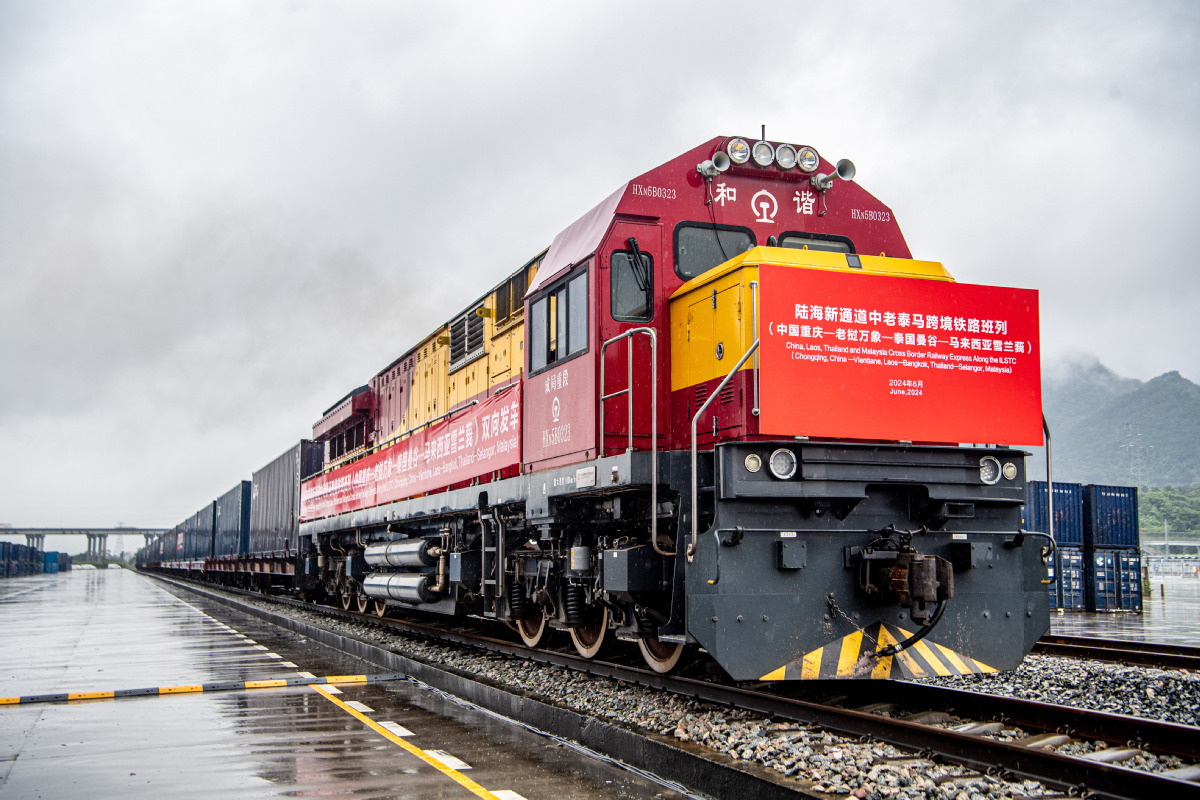Trade corridor fuels western China's growth
After five years of construction, it now connects 523 ports across 124 countries, regions


NANNING — A train loaded with electronics, auto parts and mechanical equipment from Chongqing, a major inland metropolis in southwestern China, arrives at the east railway station of Qinzhou Port in Guangxi Zhuang autonomous region, en route to its next destination: ASEAN.
As Huang Jiangnan, the stationmaster, casts his eyes over the vast expanse of the container yard, a profound sense of achievement washes over him.
"There were only two of us working at the station and the annual tally of dispatched trains was less than 10," Huang said as he reminisced about the station's inception in May 2015, originally designed to serve the comprehensive bonded zone in Qinzhou.
The station at Qinzhou Port has today become a vital node of the New International Land-Sea Trade Corridor, with daily dispatches surging to over 20 trains.
The Qinzhou Port now operates 76 container routes, connecting to over 200 ports across more than 100 countries and regions through its foreign trade network. From January to August, the port handled more than 5.8 million twenty-foot equivalent units of goods, marking a 16-percent increase year-on-year, while cargo throughput rose 4.4 percent year-on-year to 297 million metric tons during the period.


















